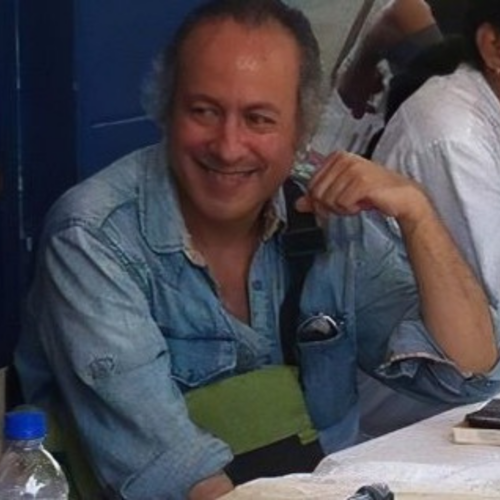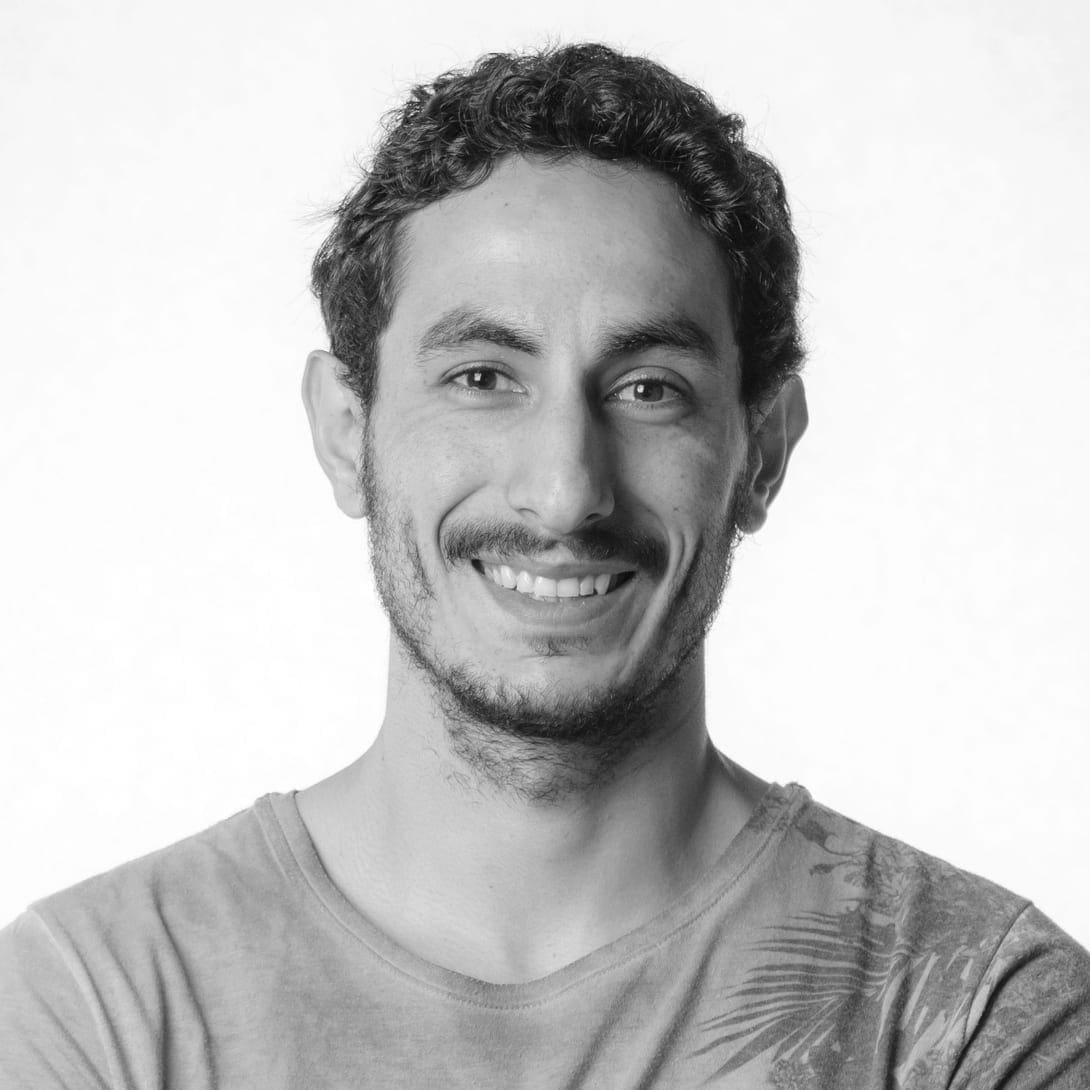Well-known Salvadoran writer who challenged authoritarian government hacked and arrested
On Sunday, February 4, 2024, I walked to the nearest school, feeling like a warrior heading into battle. I listened to old Spanish chants through my headphones to maintain a sense of calm. The fear of being arrested loomed over me, though I reassured myself that at worst, it would only be for a few hours.
- 4 months ago
March 25, 2024

SAN SALVADOR, El Salvador — Day by day, with a heavy heart, I watch as El Salvador sinks deeper into what I perceive as an authoritarian, even dictatorial, regime. I spent four days behind bars simply for reading the Political Constitution aloud. I faced threats and intimidation aimed at silencing my political views. It seems there is no longer any space for dissent in my country.
As a writer and poet, I remain attuned to everything happening around me, viewing it from a broad perspective and through a more ontological lens. I also approach political matters in this way. When Nayib Bukele assumed the presidency of El Salvador, I initially saw some positive things in his ideas for the country. In the early days of his administration, I supported certain actions. However, I soon became wary, observing his charismatic yet egocentric personality, which I feared could become a danger down the line.
Read more stories from El Salvador At Orato World Media.
Writer becomes target of digital surveillance for opposing Bukele’s government
As time passed, and his administration limited the freedom of everyone, my perspective shifted. Gradually, I became a vocal critic of his government. The stories of innocent people being arrested, tortured, and killed marked a turning point in my stance. With the manipulation of institutions and breaches of the Constitution, I came to view his rule as dictatorial.
The day the Constitutional Chamber of the Supreme Court of Justice ruled that Bukele could seek immediate re-election, I felt compelled to engage in the political discourse. I started voicing my dissenting opinions on social media, quickly realizing that the regime did not take kindly to such views.
While checking my Twitter notifications one afternoon, I noticed something odd. My profile picture changed. Instead of my usual picture, the photo had a laser-like image, a symbol some Bukele supporters use online. It seemed harmless, but it felt like a warning that they could get into my account whenever they wanted. For other intellectuals and journalists, the hacking became far more intrusive.
I wrote two strong manifestos against the regime and tried to share them with the media but no matter where I went, they turned me down. It felt like everyone was scared to publish anything critical. Likely, they worried what the regime might do.
This experience reminded me of my youth, living under a dictatorship. Back then, wearing a t-shirt featuring Che Guevara or Monseñor Romero could land you in trouble. I remember having to hide books on sociology or Romero’s speeches so the police would leave me alone. Now, facing this new wave of oppression, I found my calling to act.
Arrested during election day: “I loudly recited fragments of the Political Constitution of El Salvador that prohibited the presidential re-election of Nayib Bukele”
In the privacy of my home, I began transcribing articles from the Political Constitution and drafting a speech to accompany them. Drawing on my years of theater study, I rehearsed alone until I perfected my presentation for election day.
On Sunday, February 4, 2024, I walked to the nearest school, feeling like a warrior heading into battle. I listened to old Spanish chants through my headphones to maintain a sense of calm. The fear of being arrested loomed over me, though I reassured myself that at worst, it would only be for a few hours. Little did I know what awaited me.
There I was, standing in the schoolyard, amidst an election day that shouldn’t have been taking place. With a deep breath, I began to speak. Adrenaline surged through my veins, and although I felt nervous about the potential consequences, I had a deep conviction that this was what I needed to do. I loudly recited fragments of the Political Constitution of El Salvador that prohibited the presidential re-election of Nayib Bukele.
As I spoke out, my confidence surged, and I felt a rush as I stood up for what I believed in. Sure, I felt scared, but the excitement helped me push past it. Some people in the crowd backed me, while others yelled for me to get out. The cops nearby looked like they had no idea what to do. Then, I shared some words I wrote for the occasion. I echoed Monseñor Romero’s call from 1980, asking the national civil police not to repress the Salvadoran people. Despite all this, they arrested me.
From threats to imprisonment in a bizarre encounter
A young police officer approached me and said I needed to go with them to the station across the street. He guided me kindly, without any violence. Throughout the ordeal, they treated me well and addressed me politely, even when they threatened me.
Sitting in a plain, gray room, an intelligence agent approached. He asked if I knew what National Geographic was. I said yes, I really liked their magazine and films. “There’s this documentary about salmon I enjoy. They swim upstream, in groups, but out of all those salmon, only one makes it,” he said. “You’re like one of those salmon.” His remark felt like the implication of a threat, delivered in a polite manner.
In moments like that, fear becomes inevitable. I had no idea what was going to happen next. In my head, I kept telling myself to stay calm; refuse to let fear get the better of you. I felt that if I lost my composure, I put myself at greater risk. As time passed, the situation grew increasingly bizarre. They took me to a cage, and the guy instructing me wore no police uniform. Rather, he donned long underwear and a white t-shirt.
I wondered, “Is he a police officer or just another inmate?” He ordered me to strip and stand against the wall. I feared I might have to defend myself against someone intending to assault me as a prison initiation. Thankfully, that didn’t happen, but the tension felt palpable.
A writer’s release: echoes of the war-torn eighties
The man handed me used underwear and wearing nothing else, I entered cage four. The cramped 25-square-meter space offered no area for hygiene and filled with about 25 people. At bedtime, avoiding physical contact became impossible; we practically laid on top of each other. We slept directly on the floor, without blankets or mattresses, using plastic bottles as pillows.
Cut off from the outside world, my anxiety and worry escalated relentlessly. “What if they fabricate additional charges to prolong the process,” I wondered. Doubts about my ability to endure this ordeal crept in. The fear of breaking down haunted me, as did the uncertainty about the dangerous individuals I might be sharing my confinement with.
However, I soon realized that despite the reasons they brought us here, a strong sense of solidarity emerged among all the prisoners. A few days later, thanks to my lawyer’s efforts, the news of my release brought immense relief. It felt like waking up from an unusually long nightmare. I could finally reclaim my life. This experience feels like a movie; like reliving the reminiscent war-torn eighties.
I remain fully aware of the state continuing to surveille me. Whether I venture to the supermarket or take my dog for a walk, I leave my house with heightened vigilance, sensing someone always following me. I feel like they watch over my digital communications, keeping an eye on what I write. Looking ahead, I will support the social resistance movement. The time has come to expose what is happening in El Salvador. This is far from a democratic process.











































































































































































































































































































































































